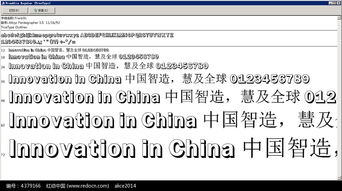The Mesmerizing Tick-Tock of Time: The Sound of Clocks
The tick-tock of time: Exploring the English expression for the sound of a clock

In the quiet corners of our lives, there exists a subtle yet persistent melody that marks the relentless march of time. This melody, the very essence of temporal measurement in its auditory form, is the tick-tock of a clock. For centuries, humans have relied on this rhythmic soundtrack to punctuate the hours, minutes, and seconds that make up our days. But how do we encapsulate this iconic sound in English?

The answer, as simple as it may seem, holds a wealth of linguistic and cultural significance. The term "tick-tock" has become synonymous with the sound produced by a mechanical clock, whether it be an antique grandfather clock in a grand hall or a small wall clock in a bedroom. This onomatopoeia perfectly mimics the alternating clicks that signify the passage of each increment of time, creating a vivid auditory image in the listener's mind.
To delve deeper into the origins of "tick-tock," one must consider the mechanics behind the sound. In a mechanical clock, the escapement mechanism is responsible for regulating the flow of energy from the mainspring or weight to the pendulum or balance wheel. This regulation creates a consistent, rhythmic movement that we perceive as the tick-tock sound. Each "tick" represents the moment when the escapement releases a tooth of the gear train, allowing the pendulum to swing freely, while each "tock" marks the pendulum's return stroke, resetting the escapement for the next cycle.
The term "tick-tock" is not just a descriptive label; it has become an integral part of our collective consciousness. It is often used metaphorically to signify the passage of time or the inevitability of events unfolding. For instance, one might say, "Time ticks on, and we must move forward," emphasizing the relentless nature of time and the need for personal progress.
In the English language, "tick-tock" has achieved a level of cultural currency that transcends its literal meaning. It has appeared in countless pieces of literature, music, and film, serving as a poignant reminder of our mortality and the fleeting nature of existence. Poets have invoked the tick-tock of a clock to evoke a sense of nostalgia or melancholy, while screenwriters have used it to build tension or convey a sense of urgency.
The sound of a clock has also been a source of inspiration for composers, who have incorporated it into their works to create a sense of atmosphere or mood. The ticking of a clock can serve as a backdrop to a scene, underscoring the characters' emotions or the plot's developments. In some cases, the clock itself becomes a character, its tick-tock serving as a narrative device that drives the story forward.
Beyond its literary and artistic applications, the tick-tock of a clock holds practical significance. In an era dominated by digital technology, many of us have become accustomed to the silent precision of quartz movements and digital displays. However, the comforting, familiar sound of a mechanical clock can still be found in homes and workplaces around the world. For some, the tick-tock serves as a reassuring presence, a reminder of the constancy and reliability of time itself.
Moreover, the sound of a clock can have a soothing effect on the human psyche. Studies have shown that the rhythmic ticking can help reduce stress and anxiety, acting as a form of white noise that masks background disturbances and promotes relaxation. In this way, the tick-tock of a clock becomes not just a tool for measuring time but also a means of managing our emotional well-being.
As we consider the English expression for the sound of a clock, it is worth noting that other languages have their own unique terms for this phenomenon. In French, for example, the sound is often described as "tic-tac," while in German, it is "tik-tak." These variations reflect the diverse linguistic landscapes that have evolved to describe the same universal experience.
In conclusion, the tick-tock of a clock is more than just a sound; it is a cultural symbol, a metaphor for time, and a source of inspiration. The English term "tick-tock" perfectly encapsulates this iconic sound, allowing us to communicate its significance across generations and borders. Whether we are lost in thought, engaged in conversation, or simply going about our daily routines, the tick-tock of a clock serves as a constant reminder of the precious commodity we call time.
In an age where technology is rapidly transforming our lives, the mechanical clock and its signature tick-tock sound stand as a testament to human ingenuity and the enduring quest to measure and understand the passage of time. As we continue to evolve, let us not forget the simple pleasures and profound meanings embedded in the everyday sounds that surround us. The tick-tock of a clock is one such sound, a timeless melody that resonates deep within our collective consciousness.
For those who cherish the sound of a mechanical clock, there is something inherently comforting and nostalgic about it. It serves as a bridge to the past, connecting us with generations who have relied on this timeless technology to navigate their lives. And for those who find solace in its rhythmic ticking, the tick-tock of a clock will always hold a special place in their hearts.
So the next time you hear the tick-tock of a clock, take a moment to appreciate its significance. Let it remind you of the beauty of simplicity and the power of sound to evoke emotion and memory. And as the seconds tick by, may you find peace and purpose in each and every one of them.
- 上一篇: 李良宝有几个子女?
- 下一篇: 优化扑克牌握持技巧:如何均匀抓取牌面
-
 紧急时刻:Nick Of Time 歌词详解资讯攻略02-26
紧急时刻:Nick Of Time 歌词详解资讯攻略02-26 -
 What Does '到时候再说' Mean in English?资讯攻略11-02
What Does '到时候再说' Mean in English?资讯攻略11-02 -
 What is the meaning of "April" in English?资讯攻略02-15
What is the meaning of "April" in English?资讯攻略02-15 -

-

-
 揭秘“规律”的英文奥秘:掌握“regular”的妙用资讯攻略12-05
揭秘“规律”的英文奥秘:掌握“regular”的妙用资讯攻略12-05












